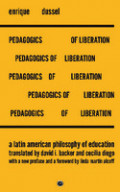
The Pedagogics of Liberation :a Latin American philosophy of education
Enrique Dussel is considered one of the founding philosophers of liberation in the Latin American tradition, an influential arm of what is now called decoloniality. While he is astoundingly prolifi…
- Edisi
- -
- ISBN/ISSN
- 9781950192281
- Deskripsi Fisik
- 204 p.; 22 cm.
- Judul Seri
- -
- No. Panggil
- 199.82 DUS p
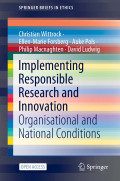
Implementing responsible research and innovation :organisational and national…
The book is an analysis of data collected in the RRI-Practice study. It comprises an organizational analysis and an analysis of national discourses, thus analysing conditions for the uptake of RRI …
- Edisi
- -
- ISBN/ISSN
- 9783030578503
- Deskripsi Fisik
- xix, 120p. : ill.
- Judul Seri
- -
- No. Panggil
- 174.95 IMP i
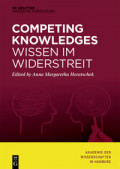
Competing knowledges – wissen im widerstreit
Whatever societies accept as ‘knowledge’ is embedded in epistemological, institutional, political, and economic power relations. How is knowledge produced under such circumstances? What is the …
- Edisi
- -
- ISBN/ISSN
- 9783110659658
- Deskripsi Fisik
- X, 220 p.
- Judul Seri
- -
- No. Panggil
- 121 COM c
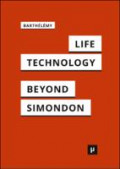
Life and technology:an inquiry into and beyond Simondon
The philosophy of Gilbert Simondon has reinvigorated contemporary thinking about biological and technological beings. In this book, Jean-Hugues Barthélémy takes up Simondon’s thought and shows …
- Edisi
- -
- ISBN/ISSN
- 9783957960702
- Deskripsi Fisik
- 173 p.; 23 cm.
- Judul Seri
- -
- No. Panggil
- 194 BAR l
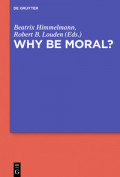
Why be moral?
What reasons do we have to be moral, and are these reasons more compelling than the reasons we have to pursue non-moral projects? Ever since the Sophists first raised this question, it has been a f…
- Edisi
- -
- ISBN/ISSN
- 9783110366396
- Deskripsi Fisik
- VIII, 278 p.
- Judul Seri
- -
- No. Panggil
- 170 WHY w
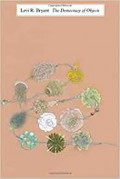
The democracy of objects
In The Democracy of Objects Bryant proposes that we break with the epistemological tradition and once again initiate the project of ontology as first philosophy. Bryant develops a realist ontology,…
- Edisi
- -
- ISBN/ISSN
- 9781607852049
- Deskripsi Fisik
- 1 online resource
- Judul Seri
- -
- No. Panggil
- 150.92 LEV d
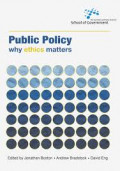
Public Policy:Why ethics matters
Ethics is a vigorously contested field. There are many competing moral frameworks, and different views about how normative considerations should inform the art and craft of governmental policy maki…
- Edisi
- -
- ISBN/ISSN
- 9781921666759
- Deskripsi Fisik
- -
- Judul Seri
- -
- No. Panggil
- 170 BOS p

Value and the humanities the neoliberal university and our victorian inheritance
Tracing the shift from liberal to neoliberal education from the nineteenth century to the present day, this open access book provides a rich and previously underdeveloped narrative of value in high…
- Edisi
- -
- ISBN/ISSN
- 9783030378929
- Deskripsi Fisik
- 255 p.; 22 cm.
- Judul Seri
- -
- No. Panggil
- 171.2 VAL v
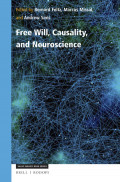
Free will, causality, and neuroscience
Neuroscientists often consider free will to be an illusion. Contrary to this hypothesis, the contributions to this volume show that recent developments in neuroscience can also support the existenc…
- Edisi
- -
- ISBN/ISSN
- 9789004409965
- Deskripsi Fisik
- viii, 184p. : ill.
- Judul Seri
- -
- No. Panggil
- 123.5 FRE f
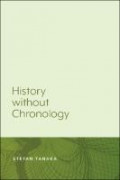
History without chronology
Although numerous disciplines recognize multiple ways of conceptualizing time, Stefan Tanaka argues that scholars still overwhelmingly operate on chronological and linear Newtonian or classical tim…
- Edisi
- -
- ISBN/ISSN
- 9781643150048
- Deskripsi Fisik
- XIV, 202 p.
- Judul Seri
- -
- No. Panggil
- 115 TAN h
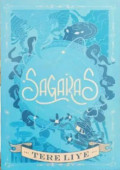
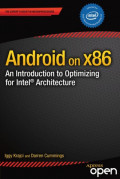
 Karya Umum
Karya Umum  Filsafat
Filsafat  Agama
Agama  Ilmu-ilmu Sosial
Ilmu-ilmu Sosial  Bahasa
Bahasa  Ilmu-ilmu Murni
Ilmu-ilmu Murni  Ilmu-ilmu Terapan
Ilmu-ilmu Terapan  Kesenian, Hiburan, dan Olahraga
Kesenian, Hiburan, dan Olahraga  Kesusastraan
Kesusastraan  Geografi dan Sejarah
Geografi dan Sejarah